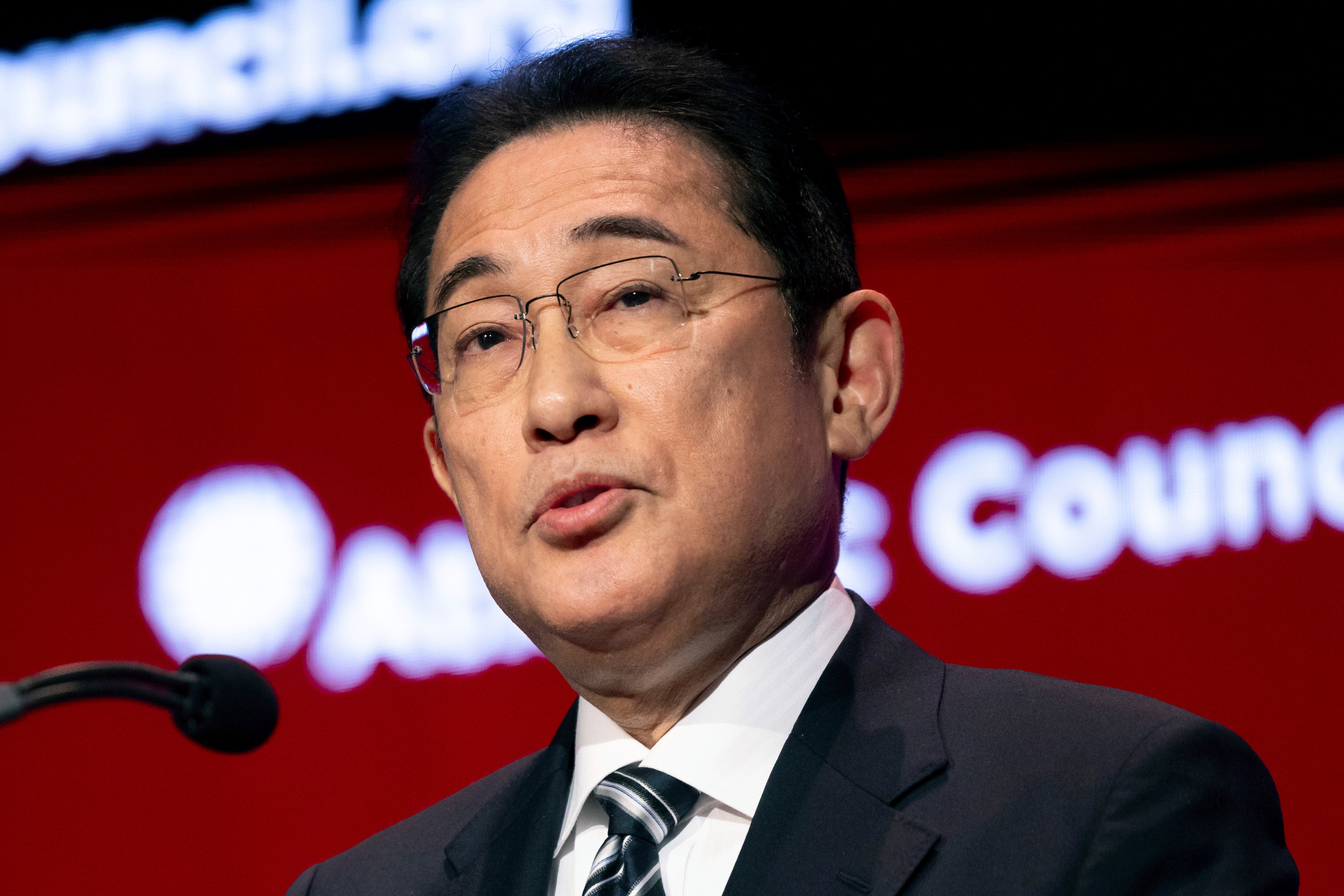Japan's Kishida unveils the gist of a new economic package as support for his government dwindles
Japanese Prime Minister Fumio Kishida has unveiled the gist of his new economic package that focuses on wage increases and measures to soften the impact of rising prices

Your support helps us to tell the story
From reproductive rights to climate change to Big Tech, The Independent is on the ground when the story is developing. Whether it's investigating the financials of Elon Musk's pro-Trump PAC or producing our latest documentary, 'The A Word', which shines a light on the American women fighting for reproductive rights, we know how important it is to parse out the facts from the messaging.
At such a critical moment in US history, we need reporters on the ground. Your donation allows us to keep sending journalists to speak to both sides of the story.
The Independent is trusted by Americans across the entire political spectrum. And unlike many other quality news outlets, we choose not to lock Americans out of our reporting and analysis with paywalls. We believe quality journalism should be available to everyone, paid for by those who can afford it.
Your support makes all the difference.Japanese Prime Minister Fumio Kishida on Monday unveiled the gist of his new economic package that focuses on wage increases and measures to soften the impact of rising prices. Support for his Cabinet has dwindled despite the latest reshuffle less than two weeks ago.
Kishida said at the Prime Minister's Office that he will instruct his Cabinet on Tuesday to start putting together the package and promptly compile a supplementary budget to fund it.
Details and the size of the package were yet to be announced, triggering opposition lawmakers to criticize Kishida for using the package to lure voter support ahead of a suspected snap election.
Kishida's announcement Monday also comes as media surveys showed his recent Cabinet reshuffle has largely failed to buoy his dwindling support ratings.
According to media surveys conducted days after the Sept. 13 Cabinet renewal, support ratings remained flat at around 30%, exceeded by disapproval of around 50%. The majority of the respondents said they did not give credit to the reshuffle, believing it to be Kishida's effort to balance power among factions within his governing party, rather than trying to improve government policies. They saw it as a move to solidify his grip on power ahead of his party leadership vote next year.
Voters initially welcomed appointments of five women into his 19-member Cabinet, part of his attempt to buoy sagging support ratings for his previous male-dominated Cabinet, which had only two women. The five females match the number in two earlier Japanese Cabinets — in 2014 and 2001.
But the praise evaporated quickly when people found out that none of the 54 posts for vice-ministers and other special advisory posts went to women.
Kishida also came under fire over his remarks about the appointment of the five women to the Cabinet. He said he expected them to “fully demonstrate their sensitivity and empathy that are unique to women.”
That triggered a backlash from women's rights activists, academics and opposition lawmakers. The phrase trended on the social media platform X, formerly Twitter, with many users criticizing it as biased, outdated and asking if there is any such thing as uniquely female sensitivity.
Kishida later defended himself by saying he meant to stress the importance of diversity in policy making and that he wanted to convey his hope the female ministers will fully express their personality and capability on the job.
On Monday, Kishida said the new economic package would include measures to ease the impact of rising prices on the people, to achieve sustainable wage increases and income growth. He also pledged to promote domestic investment in areas such as semiconductors to help growth, while combating rapidly declining births and population, and to ensure reinforced defense and disaster prevention.
Kishida promised a “speedy” implementation by the end of October, but how his government plans to fund hefty costs needed for lower births measures and military buildup is unknown.
Kishida said he will shift the economy of cost-cutting to one of active investment and salary increase.
Asked if he is eyeing a snap election amid rising speculation, Kishida said he is concentrating on tackling the economy and other policies that cannot be postponed. “Right now, I'm not thinking about anything beyond that,” he said.